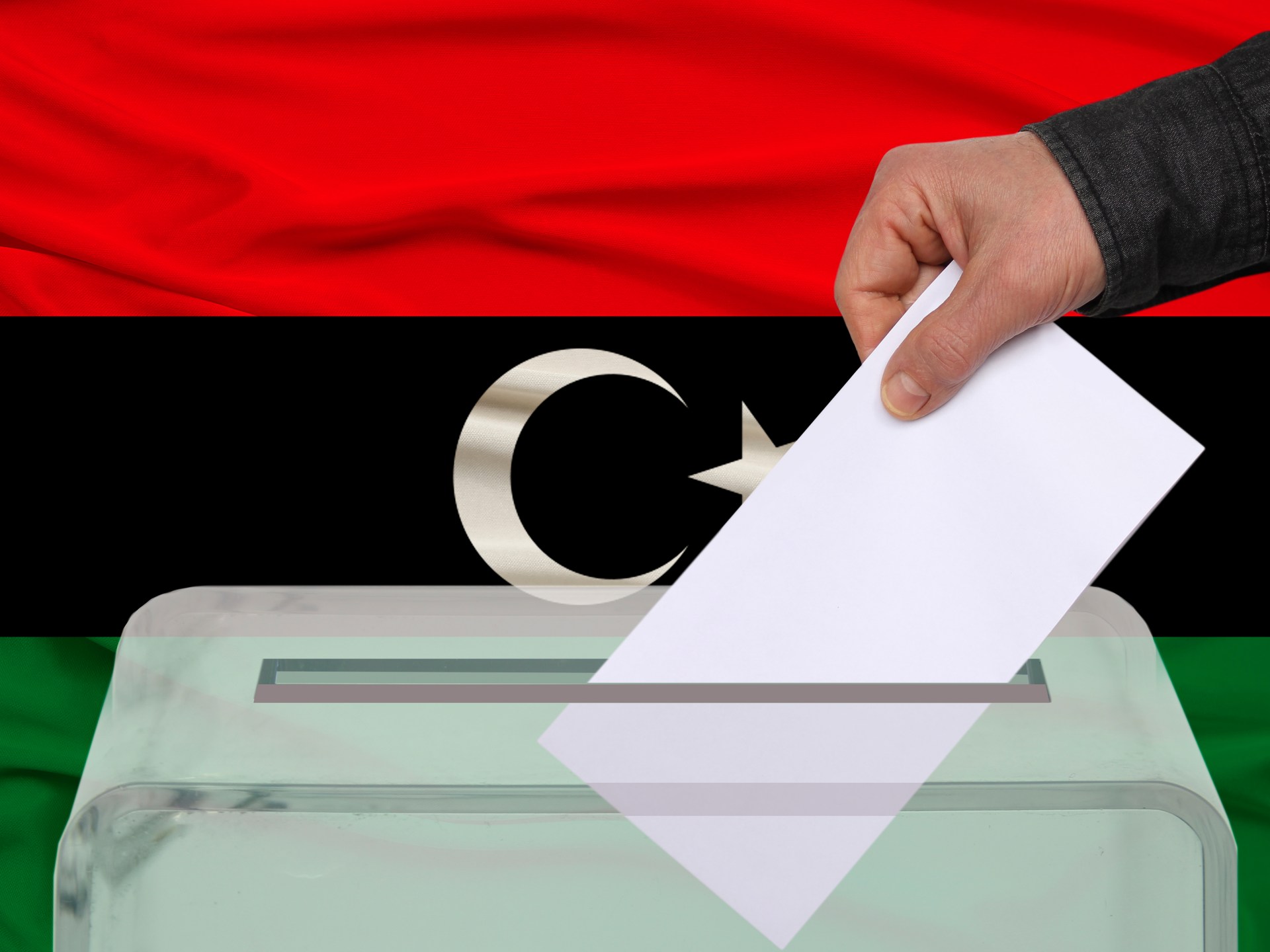Some regions of Libya witnessed calls to accelerate the holding of general elections and end the transitional stages (Shutterstock)
Tripoli -
Two currents are conflicting in Libya, one of which calls for holding parliamentary and presidential elections to end the transitional stages once and for all, and the other calls on its supporters to form a unified government that will end the current political division between two governments, one in the West and the other in the East, and be able to supervise the holding of elections.
In his meeting with the German Ambassador to Libya, Michael Unmacht, on February 13, the Speaker of the Libyan House of Representatives, Aguila Saleh, linked the holding of general elections to the formation of a unified government, whose primary task is to hold the elections after the completion of the constitutional base and electoral laws necessary to organize the presidential elections and elect the National Assembly.
For his part, the head of the United Nations Support Mission in Libya, Abdullah Batili, stressed that further delay cannot be accepted in forming a unified government that includes all regions, east, west, and south, to restore the social fabric, revive the economy, and restore the nation’s sovereignty and dignity, as he put it.
This trend is supported by calls that appeared in the city of Misrata, east of the capital, Tripoli, to form a unified government as a condition for holding general elections in accordance with the electoral laws issued by the Libyan House of Representatives on October 4 last year.
In this context, the former head of the Supreme Council of State, Khaled Al-Mishri, said on his Facebook page that he agreed with national activists and a movement from the city of Misrata to support the formation of a unified and neutral government whose mission is to complete the elections through laws that were completed by a joint committee of the House of Representatives and the Supreme Council of State.
A pro-election movement
On the other hand, areas in Libya witnessed calls to accelerate the holding of general elections and end the transitional stages, warnings against the political class that seeks to procrastinate and disrupt the holding of these elections, and calling on the High National Elections Commission to reveal the real obstructionists in holding the elections in Libya.
On February 25, the notables of the municipality of Bani Walid, southeast of the capital, Tripoli, called - in a statement - for ending the transitional stages by holding fair and impartial elections that do not exclude any party, through an expanded national dialogue that ensures the creation of appropriate conditions for holding these elections, and rejecting the continuation of the state of tension. Politically, in light of the political class’s refusal to meet the Libyans’ demand to end the transitional stages.
The statement urged the Libyan people to unite as one to confront the conspiracy targeting their right to hold elections, and to resist their will for change.
In another statement, the people and members of the municipal council and service sectors in Bani Walid announced that Libyans are united behind the demand for holding elections, leading to choosing the legislative and executive authority that runs the country.
The people held the High National Elections Commission responsible for not revealing those obstructing and refusing to produce fair and impartial laws.
A meeting of the Supreme Council of State with a number of notables and notables from the western region of Libya (Supreme Council of State)
Invitation to the Security Council
The UN Security Council called for the need to hold elections as soon as possible, and threatened to punish those who obstruct the political process.
He affirmed - in a statement - his strong commitment to a comprehensive political process led by Libyans, facilitated by the United Nations, and based on the electoral laws agreed upon by the joint “6+6” committee between the House of Representatives and the Supreme Council of State.
The Council said that these laws would enable the holding of free, fair, transparent and comprehensive national presidential and parliamentary elections throughout Libya as soon as possible.
He stressed that the successful completion of the political transition process in Libya provides the best opportunities to bring peace, stability and security to the Libyan people, and called on the international community to provide full support to the UN envoy to Libya Abdullah Batili and his mission in implementing their mandate.
The head of the National Unity Government, Abdul Hamid Al-Dabaiba, welcomed the Council’s call for the necessity of holding elections, and said that it was consistent with what he described as “his vision for a political solution based on ending the long transitional stages that Libya and its people have suffered through, through a fair and transparent electoral process based on fair constitutional and legal foundations.”
Al-Dabaiba stated that his vision for resolving the crisis in his country called on him to quickly accept Batelli's invitation to the five-party dialogue table that brings together the five main parties to the Libyan crisis.
Al-Dabaiba renewed his call to all parties to sit at the dialogue table to launch the phase of permanent stability that the Libyans deserve.
Source: Al Jazeera

